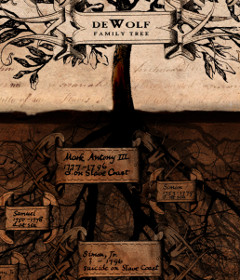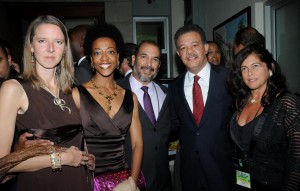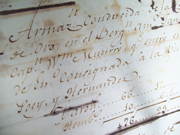Mon 8 Oct, 2012
A slave trading family on NBC’s “The Office”
Comment now Filed under: History| Tags: James DeWolf, Legacy of slavery, Slave trade, The Office, Traces of the Trade |
 While I usually blog at the Tracing Center these days, I thought this post I wrote today might be worth sharing with readers here, too. Please feel free to offer any thoughts below, or comment here.
While I usually blog at the Tracing Center these days, I thought this post I wrote today might be worth sharing with readers here, too. Please feel free to offer any thoughts below, or comment here.
When I sat down this weekend to watch last Thursday’s episode of “The Office,” I was quite surprised to discover that the plot largely revolved around the revelation that Andy Bernard, like me, is descended from slave traders.
As you might imagine, as someone who has wrestled with this family legacy, and who cares a great deal about seeing the public to terms with the legacy of slavery, I had mixed feelings watching this subject being addressed in a half-hour comedy show.




 As I returned to the U.S. from Havana last night, the Associated Press released a story on our visit, “
As I returned to the U.S. from Havana last night, the Associated Press released a story on our visit, “
